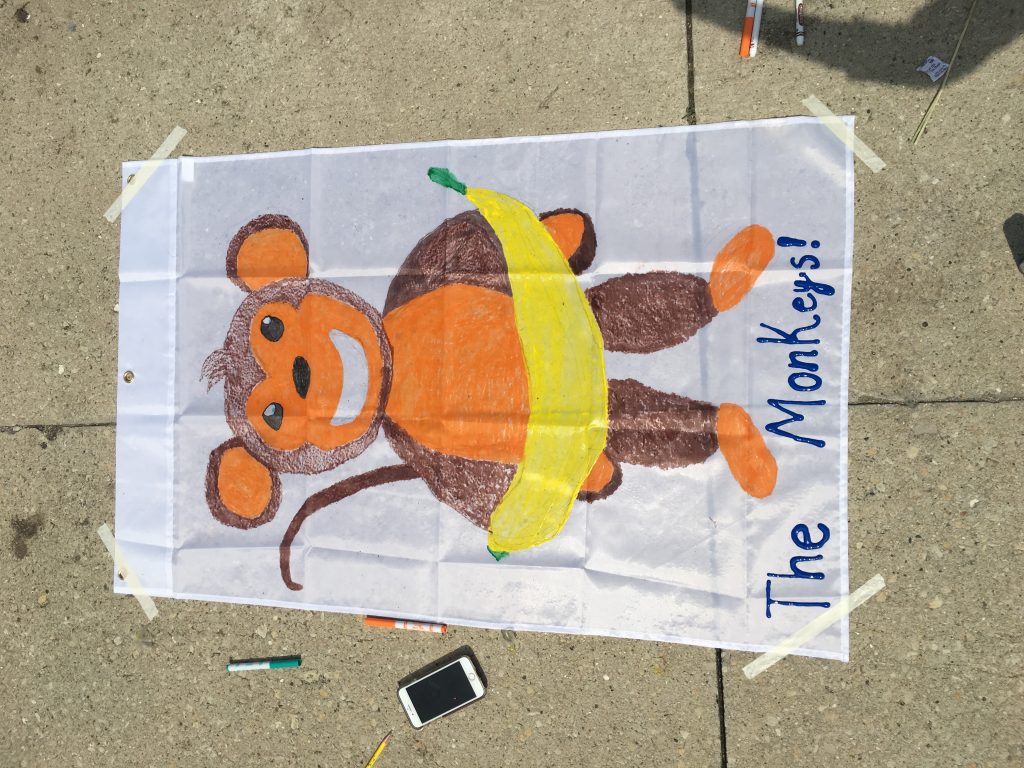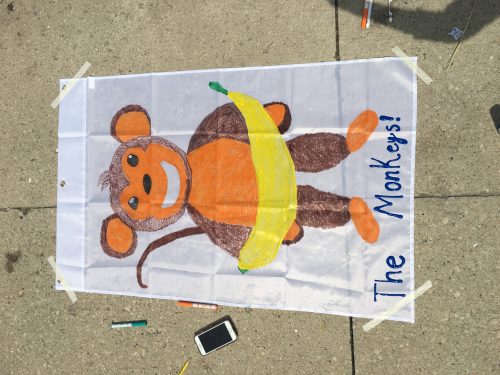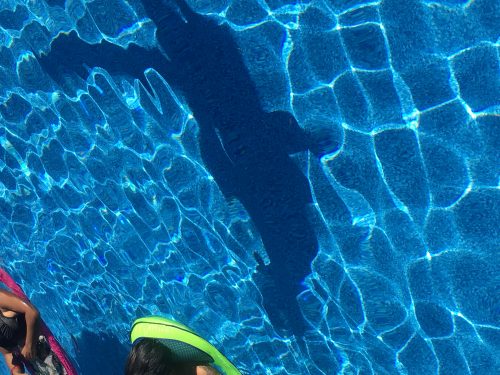
What I’ve Learned from Five Year-Olds at Summer Camp

Our group mascot!
I like to think of myself as a pretty active person. Well…active, as in I bike ride sometimes, I walk to my local theater, and I take public transportation. I’m definitely not the wake-up at-5am-to-run, cross-fit-after-work type of person. But after being a camp counselor for five year-olds, I’m considering changing my lifestyle completely. But besides understanding my growing lack of stamina I’ve also learned a few other things while working at camp. When having to wrangle 18 five year-olds you see the full range of the human emotion in rapid fire. From tears over missing water bottles to laughing at the word ‘eyeball’, the movement from despair to joy is quick. Watching them is a reminder of the purest form of being alive. Their unmitigated reactions to the world are eye-opening, and it reminds me that adults are honestly the same. It just manifests in different ways. As a writer I’ve been most interested in the ways that my experiences at camp are like the writing process.
Like swimming! Well, rather the act of learning to swim, which requires a lot of trust. Trust in your instructor and trust in yourself. For one of my little campers (let’s call him Levi) it’s like that trust resets everyday. Even after two weeks of swimming he still throws a tantrum at the start of every lesson, claiming he is going to drown. This is of course a very slight possibility, but the past has shown that he has the ability to do almost everything in the pool without personal harm befalling him. Which is not unlike writing. As writers we implement the tools our professors have taught us.

We practice by creating, but we still have to trust that what we are writing is good. This is not an easy feat to overcome. Trusting in your own skill is hard. Because trusting in your skills means you have to be ok with the potential of failure. When you can’t swim you drown. If you can’t write then you’re putting your eggs in the wrong basket getting an MFA. That’s where trusting your instructors comes into play. Just like the hand helping you float on your back when you’re learning to swim, writing professors are there to guide you in the same way.
They nudge your narrative when it’s getting off track, they’ll ask the right questions to help develop emerging characters, and all those books assigned during the semester come in handy. All this help is given to you so that when you are on your own you can come to trust in your own skills, so that you are ready to swim when the time comes to let go. Trust is the number one thing I’ve learned from being a camp counselor this summer. Not only from swimming, but from helping kids learn a new sport, telling them that it’ll be ok when they get a cut, and trusting that I’m actually doing a good job. At any age trusting oneself is hard, but when you do I think the results, regardless of potential failure, can be a truly satisfying experience.
